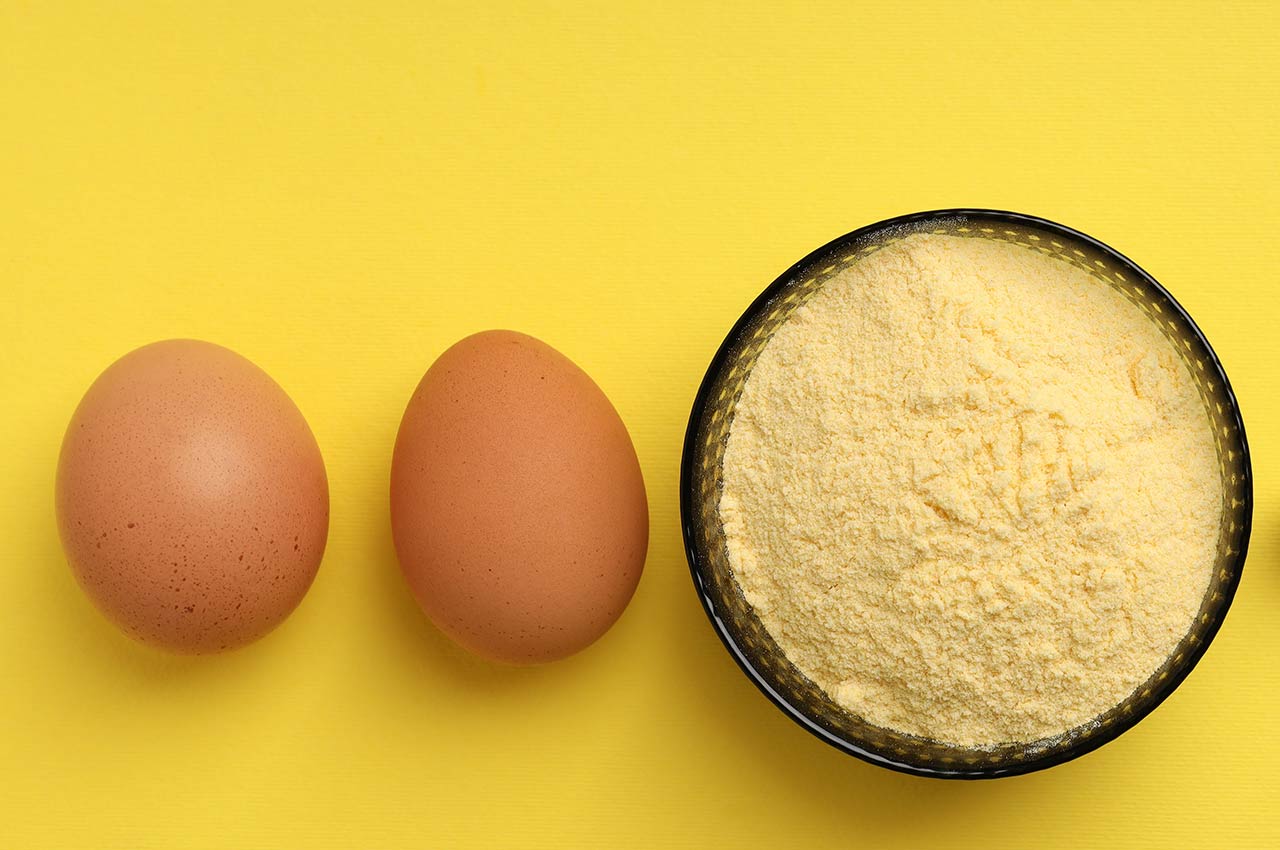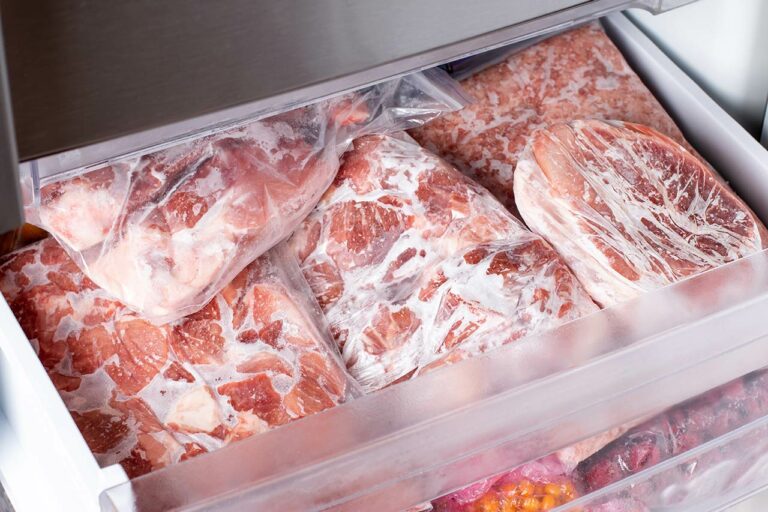How To Tell If Powdered Eggs Have Gone Bad: Expert Tips For Freshness Detection
Powdered eggs are an excellent addition to your pantry or emergency food supply, as they offer a convenient and long-lasting alternative to fresh eggs. They are made by dehydrating or freeze-drying whole eggs, and they retain most of the nutritional content of the fresh eggs. But, like fresh eggs, it’s important to know how to tell if powdered eggs have gone bad before consuming them.
With these tips and tests, you can avoid food waste, ensure the quality of your meals, and maintain your and your family’s safety in consuming powdered eggs.
Signs of Powdered Eggs Gone Bad
Just like with fresh eggs, when powdered eggs go bad, they can develop some very unpleasant characteristics. Which can be very useful for determining whether they’re safe to eat.
To ascertain whether powdered eggs are still good:
- Check the smell. If you notice an off-odor coming from the container, that’s a clear indication your powdered eggs have gone bad. Good powdered eggs should have a rather neutral scent, so any foul or sour smell should be a red flag. It won’t be quite as bad as a fresh rotten egg smell, but it won’t be pleasant.
- Note the appearance of the powdered eggs. If you see any unusual discoloration or changes in texture, this could mean the powdered eggs are old and may have lost their properties. Healthy powdered eggs should have a consistent color and texture that’s reflective of their type (egg white powder, egg yolk powder, or whole egg powder).
- Do a rehydration test. Take a little bit of powered egg and mix it with water per the package instructions. Note if there’s any sliminess when the powdered eggs rehydrate. This isn’t a normal characteristic and could mean they eggs have gone bad. Rehydrated powdered eggs should have a similar consistency to fresh eggs.
More on Appearance
When checking your powdered egg’s appearance, pay attention to both the color and the texture of the egg powder. As a general rule, fresh powdered eggs should be a uniform pale yellow color with a smooth, slightly grainy texture. (Assuming you don’t egg whites.) If you notice any dark or discolored spots, mold, or clumping, this could indicate moisture has infiltrated the package and caused the eggs to spoil.
Powdered Eggs Shelf Life and Storage Conditions
When checking powdered eggs for freshness, keep in mind that they generally have a shelf life of about a year once open when stored properly. Always make a note of when you purchased or prepared the powdered eggs the first time to ensure you’re using them within the time frame.
When considering shelf life, it’s also essential to consider the storage conditions your powdered eggs have been in. Prolonged exposure to heat, moisture, or direct sunlight can all contribute to the deterioration of egg powder more quickly. This might mean powdered eggs won’t last as long in warmer months than cooler ones.
To ensure optimum freshness, store your powdered eggs in a cool, dry, and dark place away from potential contaminants.
Food Safety Concerns
When it comes to food safety, powdered eggs are generally less prone to bacteria and spoilage than fresh eggs. There are still some precautions you need to take, though, to ensure your powdered eggs are safe for consumption.
- Always check the packaging for any signs of damage or breaches in the seal. If the packaging has been compromised, bacteria can easily contaminate the egg powder, increasing the risk of food poisoning.
- Keep your powdered eggs in a cool, dry environment, away from direct sunlight and heat. Always reseal the container after each use to prevent any moisture from entering, as this can promote bacterial growth.
- Buy pasteurized powdered eggs whenever possible. Salmonella is a common bacteria found in eggs, and it can cause serious illnesses if ingested. Pasteurized eggs undergo a heating process that eliminates the risk of Salmonella and other harmful bacteria.
- Handle powdered eggs with care. Good hygiene and handling practices can go a long way toward preventing food poisoning. Always wash your hands before and after handling powdered eggs, and use clean utensils and containers for preparation and storage.
Frequently Asked Questions
What are the shelf life indicators for powdered eggs?
Powdered eggs typically have a long shelf life, at least five years if stored properly unopened. You should always check the expiration date on the packaging to determine the specific shelf life for your product.
Once opened, powdered eggs have a shelf life of about a year, if you keep them free from contamination.
Do egg powders change in appearance when they go bad?
Yes, egg powders can change in appearance when they go bad. Over time, they might lose their vibrant yellow color and become dull or even develop a slightly brownish tint. If they’ve been exposed to moisture, you might notice clumps or hardened texture. This is an indicator that your powdered eggs might have gone bad or have lost their quality.
Can you perform a smell test to check the freshness of powdered eggs?
A smell test can be a helpful way to check the freshness of your powdered eggs. Fresh powdered eggs should have a mild, slightly eggy smell. If your powdered eggs have an off, sour, or rotten odor, it’s an indicator they’ve gone bad. In such cases, it’s best to discard them to avoid any potential health risks.
How can the texture of powdered eggs tell if they have gone bad?
The texture of powdered eggs can be another indicator to determine if they have gone bad. Fresh powdered eggs should have a fine, uniform, powdery consistency. If you notice any clumps, hard chunks, or uneven texture, it might mean your powdered eggs have been exposed to moisture or have degraded in quality. In these cases, it’s best to evaluate the freshness based on the other indicators such as smell and appearance before deciding whether to use or discard them.
The Importance of Freshness in Powdered Eggs
To maintain the nutritional quality and safety of the meals you prepare, it’s vital to ensure your powdered eggs are still fresh. Remember, while they offer convenience, the importance of quality and safety remains. Stay vigilant, store them correctly, and enjoy the many advantages that powdered eggs bring to the table.







